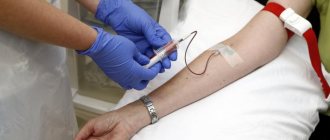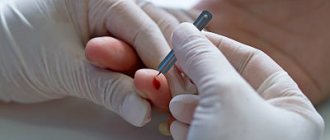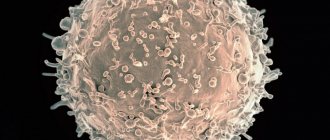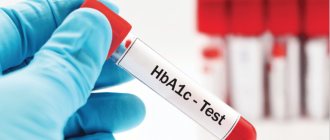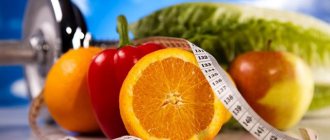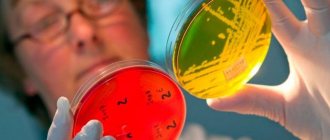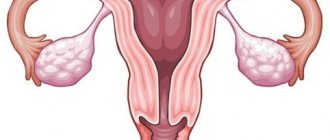Blood tests are one of the simplest and most reliable studies of the body, which are used both for screening tests and for differentiating pathologies. Therefore, such methods are prescribed very often, and almost every person has had to donate blood several times in their life.
Therefore, from a young age, most people remember that before going to the laboratory it is necessary to abstain from eating for some time, and they strictly follow this rule. That is, they come on an empty stomach.
However, these are not all recommendations regarding preparation for blood diagnostics, and for each analysis there is a specific list, the specifics of which you need to familiarize yourself with in advance. In addition, we must not forget about another important aspect that can affect the reliability of research materials - water consumption.
Indeed, many do not pay attention to this point, and at the same time, the mentioned factor can change blood counts, distorting, in turn, the results of the analysis. Therefore, when familiarizing yourself with the rules for taking the test, you should find out whether you can drink water or not, and if it is allowed, then in what quantity?
What does fasting mean?
Unfortunately, when doctors prescribe various blood tests to their patients, they do not always explain in detail about fluid intake, warning only about abstaining from eating food. Therefore, most people perceive such understatement from the perspective of “what is not prohibited is permitted,” and on the eve of the examination they may drink a lot of not only water, but also other drinks. And this is fraught with obtaining unreliable results.
As usual, doctors, warning patients that tests must be taken on an empty stomach, imply that no nutrients should enter the body before the procedure. As a rule, the recommended time for fasting is at least 8-12 hours, which is easiest to do at night, since it is much more difficult to fast during the day. Therefore, blood tests are taken mostly in the morning.
At the same time, most patients, when preparing for a scheduled diagnostic procedure and remembering the preparation rules, do not deprive themselves of a glass of water or a cup of traditional morning coffee. That is, they do not see this as a violation of medical recommendations, explaining it as the need to quench thirst or to cheer up as usual.
Reference! The main problem is that some people interpret the concept of “fasting” literally, namely, abstaining from eating food for some time. However, you need to know the following - everything that is not ordinary water is perceived by the body as food, since almost all liquids contain a certain amount of nutrients.
In other words, it does not matter much in what form proteins, fats, carbohydrates and other active biochemical components are contained. After all, they can be included in solid dishes or dissolved in various types of liquids. As a result of metabolic reactions, nutrients entering the body are transported first into the blood and then into the tissues.
So, for example, juices (even sour ones) and kvass contain a lot of carbohydrates, and, in particular, glucose, which will certainly affect blood sugar tests. Tea and coffee do not contain carbohydrates, proteins and fats, but they are rich in biologically active substances and alkaloids, for example, tannin and caffeine, which can trigger an increase in the production of digestive enzymes and hormones.
Tea and herbal decoctions can trigger increased enzyme production
Milk and all fermented milk products contain a large amount of proteins and fats. Even seemingly harmless herbal decoctions (chamomile, mint) can trigger excessive production of biologically active substances, which will certainly affect a certain number of blood parameters.
All of the above means that no drink is neutral in relation to the body, since it is a “supplier” of various active substances and is capable of changing the composition of the blood. This is why you should not take anything other than water before a blood test.
Summarize
Some blood tests require a certain period of fasting so that your doctor can get an accurate reading.
If you eat during your fasting period, tell your doctor so they can decide whether you should reschedule your blood test. In some cases, you will still be able to take the test at your scheduled time.
Sources
- B vitamins. (2017). labtestsonline.org.uk/tests/b-vitamins
- Direct LDL cholesterol. (2016). labtestsonline.org.uk/tests/direct-ldl-cholesterol
- Glucose tests. (2016). labtestsonline.org.uk/tests/glucose-tests
- Hypoglycemia (low blood sugar). (n.d.). diabetes.org/diabetes/medication-management/blood-glucose-testing-and-control/hypoglycemia
- Iron tests. (2019). labtestsonline.org.uk/tests/iron-tests
- Gamma glutamyltransferase. (2020). mayocliniclabs.com/test-catalog/download-setup.php?format=pdf&unit_code=8677
- Renal panel. (2015). labtestsonline.org.uk/tests/renal-panel
- Triglycerides. (2015). labtestsonline.org.uk/tests/triglycerides
- Vitamin B12 and folate. (2016). labtestsonline.org.uk/tests/vitamin-b12-and-folate
Effects of alcohol
As for drinks that include alcohol, their effect on the body is much larger. Therefore, it is recommended to abstain from consuming alcohol-containing products for at least 1-2 days before donating blood. The fact is that alcohol not only contains carbohydrates and other nutrients, but significantly affects the activity of the cardiovascular system, as well as the excretory system, in particular the kidneys.
This is necessarily reflected in the composition of the blood. Therefore, abstaining from alcohol for the above-mentioned period is completely justified, and directly on the day of the blood sampling procedure itself, drinks containing alcohol are strictly prohibited.
Complexes with this research
Check-up No. 1 for children and adolescents Annual preventive examination program RUB 10,950 Composition
Anti-aging diagnostics in postmenopause Control of age-related changes during postmenopause RUB 12,630 Composition
Prevention of childhood colds Examination of children aged 7+ who suffer from colds more than 4 times a year 2,170 RUR Composition
IN OTHER COMPLEXES
- Healthy child 1,050 RUR
- Female infertility RUB 16,210
- For those at risk of COVID-19 RUB 4,510
- Joints RUR 2,620
- Future dad 8,460 RUR
What about water?
The list of specified restrictions on the intake of liquids reasonably leads to the question: “Can I drink water?” Indeed, ordinary, boiled clean water is an absolutely neutral substance.
Reference! In a number of certain situations, the use of clean drinking water can cause distortion of test results. This mainly depends on what type of blood test is prescribed for the patient. Without knowing this parameter specifically, it is impossible to give a definite answer to the question regarding drinking water before the blood donation procedure.
What tests are done for thyroid hormones?
- TSH (more fully known as thyroid-stimulating hormone, or thyropine) is a substance produced by the pituitary gland. It activates the formation and production of hormones in the thyroid gland (such as T3 and T4). When the functioning of the pituitary gland is not impaired, the TSH level decreases against the background of increased thyroid function, and increases against the background of weakened thyroid function.
- Free T3 (another name is free triiodothyronine) is a substance synthesized by the thyroid gland that stimulates metabolic processes and activates oxygen uptake in tissues.
- Free T4 (we are talking about free thyroxine) is a hormonal substance produced by the thyroid gland and activates the processes of protein synthesis.
- AT-TG (meaning the presence of antibodies to thyroglobulin) - the level of these antibodies makes it possible to detect autoimmune pathologies of the thyroid gland, such as Hashimoto's disease, diffuse toxic goiter, atrophic autoimmune thyroiditis.
- AT-TPO (presence of microsomal antibodies, or antibodies to thyroid peroxidase) - we are talking about the presence of antibodies to the enzyme substance of gland cells. This analysis is very important for diagnosing autoimmune pathologies.
Water consumption for different types of tests
Blood tests are carried out using a wide range of different techniques to evaluate its various characteristics. The most common include the following list of tests, including:
How to take a clinical blood test?
- general (clinical),
- biochemical,
- for sugar
- for hormones
- serological,
- immunological.
Based on the characteristics of each study, rules for preparation are determined, which include a point regarding water intake.
General analysis
The most common and at the same time simplest type of diagnosis is a general blood test. Thanks to it, the absolute and relative amounts of blood cells are assessed.
Naturally, the water that the subject drinks is not able to change these indicators of the main body fluid. Therefore, one or even two glasses of water, consumed on the eve of the procedure or a couple of hours before the collection of biomaterial, are quite acceptable.
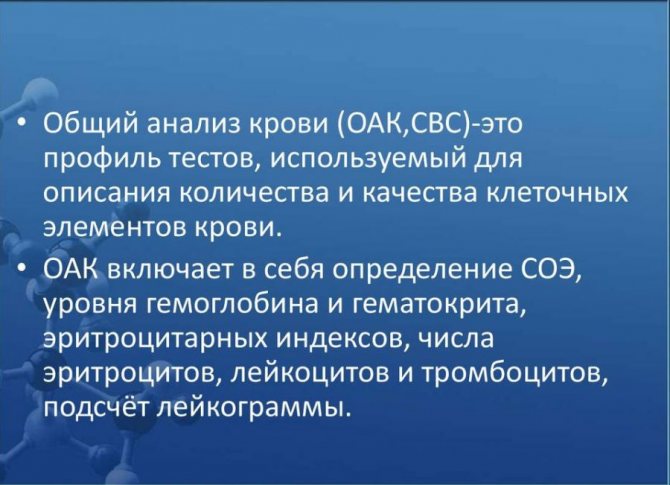
Characteristics of general blood test
It is also not considered a violation if the patient drinks a little water immediately before donating blood, which is especially true for young children who are difficult to ask to be patient. But we must not forget the main condition - it must be exclusively pure drinking water (not mineral), containing absolutely no impurities, sweeteners, flavors, and preferably non-carbonated.
Biochemical
With other types of examinations the situation is a little more complicated. Biochemical analysis, or so-called blood biochemistry, is performed to determine the levels of various compounds. Therefore, if patients drink too much fluid, it can usually lead to a change in the balance between substances present in the body's environment, the result of which is sure to affect the chemical composition of the blood.
However, the likelihood of significant deviations from the norm if the subject drinks a few sips of ordinary still water an hour before taking the sample is minimal. But no more than 30-50 ml. People who are being examined for diseases of the urinary tract should adhere to a particularly strict prohibition on drinking water.
For sugar
An equally tough approach to diagnosing blood sugar. This analysis is performed strictly on an empty stomach, without any exceptions. It must be remembered that a significant amount of water drunk on the eve of the test or shortly before it can also distort the results of the analysis.
Reference! If a person, before going to the clinic to take a sample of biomaterial, moistens his dry throat with a small amount of ordinary water, nothing terrible will happen, and this will not affect the reliability of the study in any way.
Serological, immunological and hormone analysis
There are serious restrictions on the consumption of various liquids, including clean water, even before such studies as, for example, HIV and hormones. While diagnosis by serological, immunological and tests for tumor markers does not require strict restrictions, but drinking liters of water is not follows.
Preparation rules
Test results are significantly influenced by proper preparation. Doctors recommend adhering to the following rules:
The day before donating blood, you should not drink alcohol.
- stop eating 8-12 hours before the test;
- 24 hours before collection, do not drink caffeine or alcoholic beverages;
- before donation, do not use toothpaste or chewing gum, this is due to the presence of sugar and dyes in their composition;
- do not take medications that can affect hormones, as they increase glucose levels;
- the day before the test, do not eat sweet foods;
- It is recommended to refrain from smoking on the day of delivery.
It should be remembered that sugar levels depend on the presence of stress or nervous diseases, poor diet, prolonged physical activity and diseases of the gastrointestinal tract.
Return to contents
Advice from laboratory technicians
As mentioned above, any drinks other than simple clean water affect the body as complex reagents. By their appearance, they can trigger entire chains of a wide variety of mechanisms in the human body.
And chemical reactions will cause noticeable changes in the composition of the blood, so not just any water is allowed to drink, and it is better to familiarize yourself in detail with the effect of each drink on the processes of the body. Of course, all Moscow laboratory workers explain the intricacies of preparing for tests, but this is easy to do on your own after reading the materials collected in this article.
Do not forget that the correct approach to the preparatory process will ensure reliable results, provide the doctor with enough information to make a diagnosis, and save the patient from having to return to the laboratory to give a sample. So, below is a list of drinks and their effect on the body.
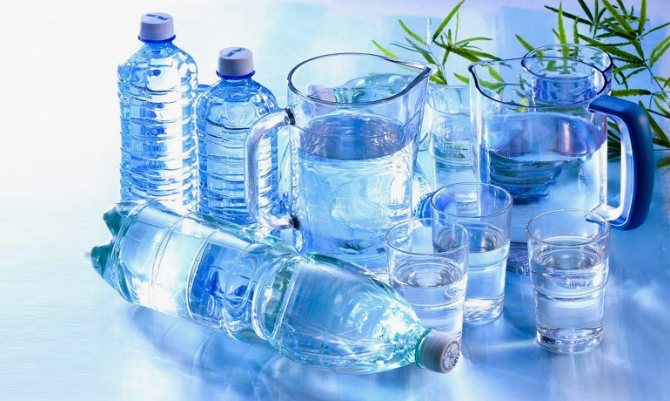
Drinking too much water will negatively affect blood test results
Plain water without gas
Before visiting the laboratory, it is recommended to drink clean water (not mineral and non-carbonated), with the exception of biochemical analysis (drinking is prohibited). This will make it easier for the laboratory worker to draw blood. You can drink water directly in line at the treatment room.
Considering that in most cases, tests are prescribed in the morning, and during night sleep the body loses some of the fluid through breathing, restoring the water balance is required. If you don't drink some water, the blood will become more viscous and may clot in the test tube. This sample will not be suitable for testing and the patient will need to return to the laboratory.
Sparkling water
The bubbles in sparkling water are nothing but carbon dioxide (CO2). There is a special enzyme in the blood - carbonic anhydrase, the action of which is aimed at ridding the body of excess carbon dioxide produced due to respiration.
A change in the amount of respiratory enzymes due to the consumption of carbonated water will certainly affect the biochemistry of the blood. Therefore, if blood is taken from a person who drank soda, the test result will be inaccurate.
Mineral water
Table mineral water also contains carbon dioxide, and also contains almost the entire periodic table - calcium, chlorine, magnesium, sodium, iron, bicarbonates, sulfates, etc. Each of these elements affects biochemical processes in the body, as a result of which mineral water is prohibited for consumption before certain types of tests.
Coffee and tea
Many people know about the effect of caffeine on the human body - it increases performance, improves the quality of positive conditioned reflexes, activates brain activity, etc. All this occurs as a result of many complex biochemical reactions, which will invariably affect the diagnostic results. Therefore, the answer to the question “is it possible to drink coffee and tea before tests?” It will definitely be “no”.
Alcohol
The impact of alcohol on the biochemical processes of the body is several times greater than that of caffeine. For example, it reduces the ability of blood to clot. To avoid errors in tests, it is better to avoid even a small portion of alcohol on the eve of taking a blood sample.
Juices
Due to the fact that any juice (even vegetable) contains a lot of glucose and fructose, which are quickly absorbed, blood sugar rapidly rises. In a healthy person, the glucose concentration increases after the intake of all carbohydrates without exception, which leads to distortion of the study results.
Is it possible to eat before a blood chemistry test?
Thanks to this study, the doctor will be able to assess the patient’s health by analyzing the main indicators. This procedure requires preparation from the person being studied, one of the most important aspects of which is the issue of nutrition.
Taking material for the LHC is done only on an empty stomach, while coffee and tea are strictly prohibited.
Foods that should not be eaten before donating blood for biochemistry include:
- Fat.
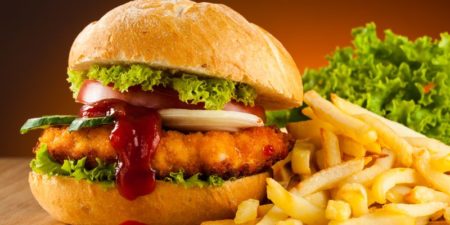
Fatty food
- Roast.
- Smoked.
- Alcohol in any form.
- Meat.
- Fish.
- Kidneys.
- Liver.
Important! To increase the accuracy of the results, the doctor has the right to put the patient on a strict diet for 3-4 days before the test. This decision cannot be ignored, otherwise the patient will have to undergo biochemistry again and undergo additional tests.
General recommendations
In this regard, there are other subtleties regarding various methods of collecting biomaterial. A significant part of medical experts say that before the procedure of taking blood from a vein, the patient needs to drink several glasses of water. Otherwise, that is, if you abstain from drinking, in their opinion, difficulties may arise in collecting a sufficient amount of blood for diagnosis.
Attention! If a person is in doubt about the volume of liquid allowed for consumption, then in any case the best option would be to ask the doctor who issued the referral for the test.
On the other hand, do not forget about a reasonable approach to any situation. So, for example, it is not recommended to drink a lot of water if you are not thirsty. In the same way, there is no need to suffer from the desire to satisfy it if it is too hot outside or indoors.
You should not expose your body to artificially generated stress, as this can distort test results to a much greater extent than one glass of ordinary water, drunk as needed, or refusing an extra portion of liquid.
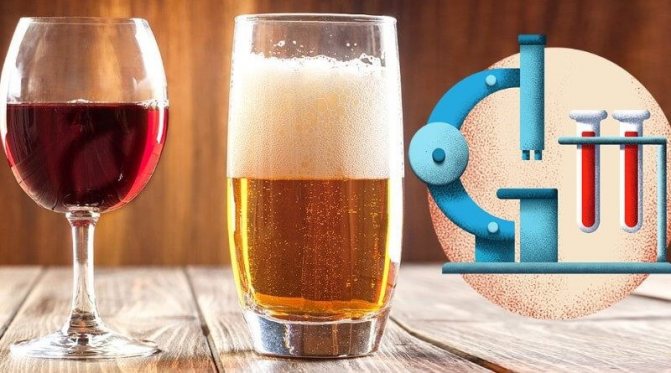
Alcohol and blood tests are incompatible!
How is a thyroid hormone test taken?
The material is collected as follows:
- The health worker prepares instruments, laboratory directions (labels, enters information about the patient, makes notes in the journal and/or electronic system).
- The patient sits down on a chair. The health worker fixes his arm, first turning his palm up and extending the elbow joint as much as possible. For convenience, a special cushion is placed under the elbow area.
- Apply a tourniquet to the area of the middle third of the shoulder (pulse impulses on the wrist should be palpable).
- The specialist treats the skin in the area of the elbow with alcohol, asks the patient to make several movements, clenching and unclenching his fist (this will allow the vein to be filled to the maximum with blood), after which the patient fixes the fist in a clenched state.
- The healthcare worker punctures the vein (an acute angle must be maintained) and draws material into a test tube or special system, while simultaneously loosening the tourniquet. At this time, the patient loosens his fist.
- The specialist applies a cotton pad moistened with alcohol to the puncture site and removes the needle from the vessel. If a vacuum system was used, the tube with blood is first disconnected.
- The patient should sit for a while with his arm bent at the elbow joint to avoid bleeding. Usually 5-6 minutes are enough for this.
The health worker places the signed test tubes in a special container and then sends them to the laboratory.
How long does it take to test for thyroid hormones?
The period during which thyroid hormone test results can be obtained may vary. First of all, it depends on the capabilities of the laboratory itself. For example, in a public clinic, the procedure can take several days - for example, when using outdated equipment with first or second generation analyzers. And in a paid network of laboratories, the result can be obtained within a day: they usually use the latest analyzers that provide quick and accurate results. On average, it is believed that the study from the moment of blood collection to the delivery of results can last from 1-2 to 6-7 days. It is better to inquire about the exact period in the specific laboratory in which the diagnostics will be carried out.
